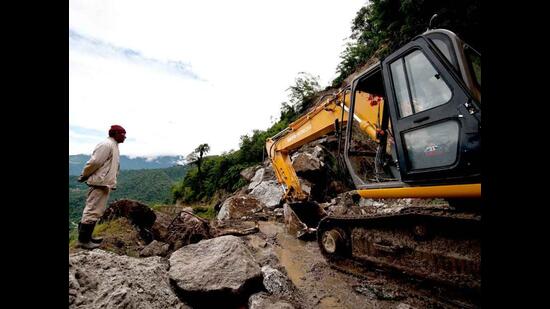Border roads are vital. So is the environment
At a time when the climate crisis is ravaging India, the government would do well to reconsider these blanket exceptions and instead focus more carefully on maintaining the ecological balance
There are two irrefutable facts about the Himalayas. First, they are the world’s youngest mountain range, prone to landslides and flash floods. Second, the climate crisis-related extreme weather events and the pace of infrastructure development have added to the natural vulnerability of the region. Therefore, it is important to handle the region, which straddles 13 Indian states and Union Territories, with care and a commitment to keep the vulnerable area intact. But that commitment is apparently under stress. On July 14, the ministry of environment, forest and climate change amended the environmental impact assessment policy 2006, to exempt highways in border areas from environmental clearance. Under the new policy, the developers of highways in border areas will only have to ensure self-compliance of a Standard Operating Procedure (SOP) notified by the Centre from time to time. In other words, they will have to self-certify their work.

The Centre’s view (presented before the Supreme Court in the Char Dham case) has been that highways are essential for national security. Therefore, in many cases, they need to be executed on priority keeping in view the strategic, defence and security considerations. So, exempting such projects from the requirement of environmental clearance in the border areas is necessary.
National security and development considerations are no doubt essential but it is also crucial that the government invests time and energy to ensure that such projects don’t lead to more environmental problems, which will not only endanger local populations but also national security. What use is a road blocked with debris or inundated by flood water? The reckless cutting of legacy forests, the muck dumping in the rivers, and the increasing air pollution in these once pristine areas are affecting people in the region as well as those who live downstream. At a time when the climate crisis is ravaging India, the government would do well to reconsider these blanket exceptions and instead focus more carefully on maintaining the ecological balance.
All Access.
One Subscription.
Get 360° coverage—from daily headlines
to 100 year archives.



HT App & Website






